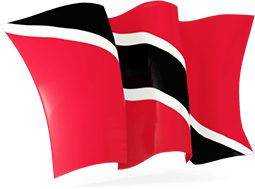

METHOD OF MANAGING COMPLAINTS AND REPORTING THEREOF
1. Complaints/lssues for consideration by the Council from the public
The Council will receive complaints from members of the Public by letter or by email. Such correspondence should be addressed to the Secretary of the Council for Responsible Political Behaviour, and may be submitted by mail to: Council Secretariat, c/o Archbishop's House, 27 Maraval Road, Port of Spain; by email to: info@politicalethicstt.org; or via http://www.politicalethicstt.org.
2. Council-initiated review of possible breaches of the Code
The Council would also consider complaints/issues raised by members of the Council where the question of a breach of the Code arises.
3. Limitations
The Code of Ethical Political Conduct is not limited by time or place or space. Effectively, the Council for Responsible Political Behaviour is not restrained from evaluating political conduct outside of election periods or in any locale inclusive of the Parliament or abroad.
The Code applies to all of Trinidad and Tobago and as such the conduct of all political parties/candidates, regardless as to whether or not they signed on to the Code, would be treated as falling under the purview of the Code and the Council.
4. Council Deliberations
The Council will deliberate on complaints received or issues raised by members at meetings of the Council. The Council may meet in special session if members deem it necessary to do so.
5. Confidentiality
All deliberations of the Council as it relates to possible breaches of the Code will be done in camera.
6. Reporting on Complaints/lssues raised
Where the Council, after considering a complaint/issue believes that there has been a ,breach of the Code, the political party or individual who would have so breached the Code will be so informed, both via their representative on the Council as well as by a
formal letter from the Council. Similar notification would also be sent to the complainant as appropriate.
Where necessary the Council may issue a statement indicating its observations.
The Council would also publish periodic reports surnmarising the number of complaints/issues deliberated upon and the outcome of such deliberations.
